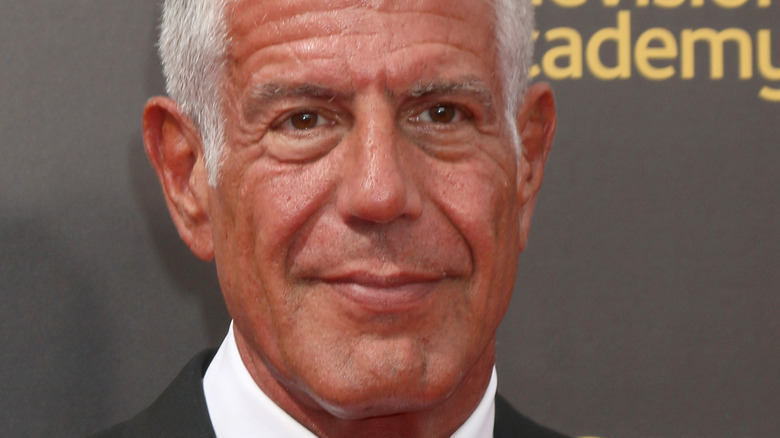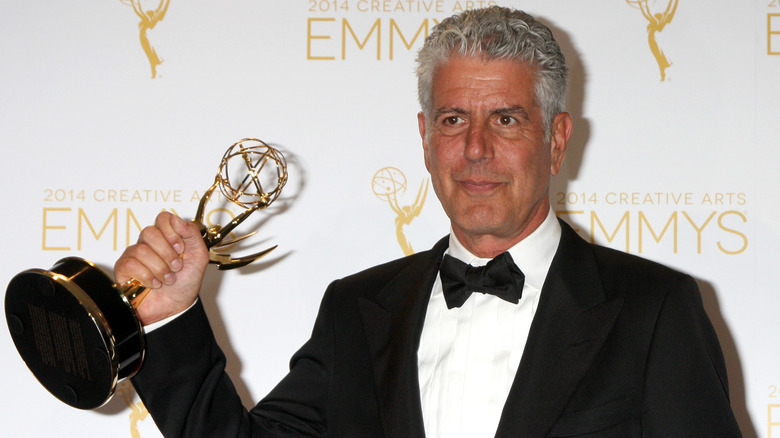This Was The Greatest Sin According To Anthony Bourdain
Scroll through Instagram if you need proof. It's hard to find a young chef who doesn't pay tribute to how Anthony Bourdain ignited something in them: a flame for the culinary world, a passion for exploring the globe through food, a need to do something more than cook: to create art out of cuisine. Morgan Neville's recently released documentary "Roadunner" gives us intoxicating insights into why.
Listen to Bourdain in "A Cook's Tour" or "Parts Unknown" — or whatever T.V. show inspired your admiration for him — and Bourdain probably comes off to you as sincere and a little bit weird, or irreverently cool, and intensely (and somehow simultaneously casually) into his work. That's because, as the people he worked with revealed in "Roadrunner," he was intimately involved in every single episode. (Should you need proof of the magnitude of "every single episode," take a look at all the places Anthony Bourdain visited in his shows, ever, courtesy of Lonely Planet.)
For Bourdain, the greatest sin was not pride or envy or gluttony, or greed. As his producer, Chris Collins revealed, Bourdain thought the greatest sin was "mediocrity." In "Raodrunner," Collins reveals the contents of an email that Bourdain sent to someone "he respected" in the entertainment industry. It's electrifying.
Why Bourdain described entertainment industry bureaucracy as 'hungry ducks'
If for Bourdain, the greatest sin was mediocrity, it follows that every day had to be extraordinary. The chef and television personality spent up to 250 days a year traveling the world — and had no intention of retiring. In an interview with People, Bourdain once revealed, "I just think I'm just too nervous, neurotic, driven."
In his quest for the out-of-the-ordinary, Bourdain, it seems, pardoned no one. How do we know? That's another thing we picked up about Anthony Bourdain's habits from "Roadrunner." He was a prolific sender of emails. In the documentary, Collins flips through an impossibly long email punctuating Bourdain's commitment to producing exceptional content.
In the email, titled "Aspiring to Mediocrity," Bourdain harps on the "grim, inevitable and all too predictable trajectory to the passage of a good episode of television." He reminds his recipient that "people aren't as stupid as your minions clearly believe," and slams "meaningless platitudes and bland generic sum-ups." Finally, the post-humous Emmy Award winner pleaded: "don't empower these squirrel-balled nerds by letting them get their way, they will then nibble this show to death like hungry ducks."

